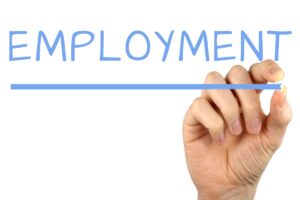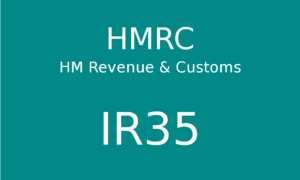Is it better to be employed or self-employed?
This is a question that often causes a debate and it’s one that unfortunately does not have a simple answer. There can be various aspects to look at from a tax and accounting point of view, some of which we will explore in this blog.
We look at this argument first from the tax point of view and then we speak with Web Agency, Pragmatic Web and understand the debate from an agency perspective.
Taxed on profit rather then set amount received
Being self-employed, the amount of tax you are liable to pay is based on profit and not on your earnings. This means that qualifying expenditure incurred whilst carrying out your work duties would be deductible from your sales invoices and will therefore reduce the profit and the tax liability. This differs to employment where tax is deducted on earnings.
Another point to note is that when you are self-employed you are taxed through self-assessment rather than through PAYE. You will be required to complete a tax return by 31 January each year and would pay your tax liability in either one or two lump payments depending on whether you are required to make payments on account. It is your responsibility to ensure your tax returns are submitted on time and are accurate. You can use a professional accountant to prepare and file your tax returns. Under self-employment, it is important to retain funds to pay your tax bill, as payments of tax are made in arrears.
Income Tax for employees and the self-employed
Income tax is calculated for the self-employed in the same way as it is calculated for those who are employed. Assuming you are entitled to the standard tax-free allowance for 2021/22 the following tax rates would apply
| Taxable Income | Tax rate |
| £0 to £12,570 | 0% covered by your personal allowance |
| £12,571 to £50,270 | 20% |
| £50,271 to £150,000 | 40% |
| £150,000+ | 45% |
Your Personal Allowance is reduced by £1 for every £2 that your net income exceeds £100,000. This means you will not receive a personal allowance if your income is £125,140 or above.
National Insurance for employees
If you are in employment the standard rate of National insurance for 2021/22 tax year is:
Class 1
| Earnings | National Insurance rate |
| £0 to £9,564 | 0% |
| £9,565 to £50,268 | 12% |
| £50,268+ | 2% |
National Insurance for employers
If you are in employment your employer will also pay national insurance contributions on your earnings at the following rates for 2021/22
| Earnings | National Insurance rate |
| £0 to £8,844 | 0% |
| £8,845+ | 13.8% |
National Insurance for the self-employed
National Insurance is calculated in a different way if you are self-employed, the following rates would apply for 2021/22.
Class 4
This is based on your self-employed profits and is payable at 9% of profits between £9,568 & £50,270 and 2% for any profits over £50,270.
Class 2
This is paid via your self-assessment tax return
It is charged at a rate of £3.05 per week if your business profits are above £6,515. If your profits are less than this there might be scope to defer paying this National Insurance by applying for an exemption certificate, however this may affect you right to certain state benefits such as state pension and maternity allowance.
Illustrative examples
1)
An employee with annual earnings of £30,000 compared to someone who is self-employed with profit at the same level would pay tax and NIC’s as follows:
| Employment | Self-employed | ||||
| Employee | Employer | Employee | Employer | ||
| Income Tax | 3,486.00 | 3,486.00 | |||
| Class 1- employee | 2,252.32 | ||||
| Class 1-employer | 2,919.53 | ||||
| Class 2 | 158.60 | ||||
| Class 4 | 2,113.65 | ||||
| Total | 5,938.32 | 2,919.53 | 5,758.25 | ||
| Total payable to HMRC | £8,857.85 | £5,758.25 | |||
This shows a saving of £3,099.60 could be made if someone is self employed rather than employed, however the majority of this saving is for the employer (£2,919.53) and not the employee (£180.07).
It could be argued that somebody on a £30,000 salary might instead command approximately £200 a day if they were self-employed. This potentially means they could generate sales of around £47,000 a year (allowing for 5 weeks holiday). The employee would need to ensure they work for at least 30 weeks a year to ensure they match the income they would have received if they had been employed, it is important to note that this example is before deducting any expenses and therefore they would need to assess how much allowable expenditure they would incur as a result of being self-employed.
2)
Looking at another example, an employee with annual earnings of £55,000 compared to someone who is self-employed with profit at the same level would pay tax and NICs as follows:
| Employment | Self-employed | ||||
| Employee | Employer | Employee | Employer | ||
| Income tax | 9,432.00 | 9,432.00 | |||
| Class 1- employee | 4,946.96 | ||||
| Class 1-employer | 6,369.53 | ||||
| Class 2 | 158.60 | ||||
| Class 4 | 3,757.78 | ||||
| Total | 14,378.96 | 6,369.53 | 13,348.38 | ||
| Total payable to HMRC | £20,748.49 | £13,348.38 | |||
There is a potential saving of £7,400.11 if someone is self-employed, again, the majority of the savings are for the employer (£6,369.53) rather than the employee (£1,030.58). Somebody on a £55,000 salary might instead command approximately £350 a day if self-employed. This potentially means they could generate sales of around £82,250 a year (allowing for 5 weeks holiday). The employee would need to ensure they work for at least 32 weeks a year (before deducting any expenses) to ensure they match the income they would have received if they had been employed.
It is worth noting that any individual in self-employment would have to consider VAT implications if their sales exceed £85,000 looking back over 12 months.
Advantages/disadvantages
There are various implications of being either employed or self-employed.
Employment
Pros
- Receive basic employment rights of earning minimum wage, sick pay, holiday pay and protection from discrimination.
- The company pays PAYE/NI on your behalf, which is usually a consistent amount each month.
- Automatically enrolled into a pension scheme.
- Job security
Cons
- Work for someone else.
- Less scope for financial planning.
- Working hours are dictated to you.
Self employed
Pros
- Freedom to choose who you work for and the hours you work.
- Have the ability to make your own arrangements for sickness and holiday cover.
- Pay your own tax and National Insurance.
Cons
- Lose the right to benefits such as holiday pay, sick pay, maternity leave, health and safety protection.
- Not automatically enrolled in a pension shame and will not have the benefit of a workplace pension scheme to supplement your contribution.
- One large tax bill every year and may have to make payments on account if your tax bill is over £1,000.
IR35
It is very important to consider the implications of IR35 when deciding whether to be self-employed. If your relationship with your customer looks like an employee and employer for income tax purposes, then IR35 may apply. If the relationship looks like a self-employed contractor and a customer, then IR35 doesn’t apply. IR35 is a contract-by-contract test, so you may have different relationships with different customers. New legislation often means it is your client who has to determine whether IR35 rules are applicable. HMRC have the power to challenge a status determination and can claim back unpaid tax. If HMRC considers that IR35 applies than the above examples will not be relevant.
IR35 is a complicated area and there have recently been some high-profile cases including challenges by HMRC. More information on IR35 can be found at http://pwpublishing.practiceweb.co.uk/plusaccountingPWP_APU_Jun18_understanding_IR35.pdf
Conclusion
Ultimately deciding on whether to be self-employed or employed will vary based on each individual’s situation. As outlined above there are many factors that will need to be taken into consideration and it would be advisable to speak to an accountant before making a decision.
Now to discuss the debate with Web Agency, Pragmatic Web – we speak with Tom Chute to understand how this impacts the life of an agency.
The agency perspective
The dream candidate has applied. You check their portfolio, references, you’ve bumped into them at networking events and they would fit right in. After an initial chat, it becomes immediately clear that they would only want a short-term contract. Noooooo!
Don’t get me wrong, we love working with freelancers, and over the years have collaborated with some superbly talented people to address shortfalls in capacity or expertise. However, we invest a lot in people when we start working with them: onboarding with team, training, event attendance, equipment, social events, and importantly emotionally. It can be hard on the team when the freelancer finishes their contract and leaves with all that investment.
In terms of cost to the business, even once all employee overheads have been taken into account, freelancers do come at a premium. Because of this, it’s important you get the most amount of value from their time with you:
- It seems obvious, but make sure you have work that matches their skillset. This goes for all employees, but especially expensive freelancers! If you’re asking them to do something they aren’t a specialist in, the extra time they’ll take could be doubling the cost to the business.
- Make sure you give them a great experience with you, so they are then an advocate for you. Who knows, they could introduce your next star employee or client down the line.
- Learning and investment works both ways. When we work with freelancers, we encourage them to take part in our learning and development programme, and often they’ll run learning lunches or similar on the skills they have, which is often different or complimentary to those we have in-house.
The freelancer switching to an agency
Through recruitment and chatting to freelancers, I’ve found no single factor that influences the choice to join an agency.
“I thought, as a freelancer, I had more freedom for learning and personal development compared to working in-house with an agency. However, after some stints with good agencies, I found that the opportunity to learn is supercharged.”
For those starting out on the career path, this is probably the biggest factor. Being surrounded by people that have tackled similar challenges, created shortcuts and gained years of experience is like being in a personal growth bubble. Of course it’s important to learn by making your own mistakes, but having a team to support you means you aren’t blowing project budgets, and therefore your earnings.
“During my first few weeks at the agency, I was still getting freelance opportunities, and it’s hard not to see the dollar signs. However, I think it’s easy to see the day rate or total project costs, and forget what it’s going to take to get that project delivered and how much will actually be hitting your bank account. In terms of delivery, I don’t profess to be a one man bad, and can’t stand finance and sales (which is unpaid!). So going in-house has meant I now spend the majority of my time on the activities I love, rather than trying to run the whole operation from finance and project management, to bug fixing and support.”
Freelancer perspective
When I asked some of our freelancers (at Pragmatic and outside), I got a range of answers:
- My day rate is much higher
- I want to be able to work for other people
- I want flexibility to take longer holidays
- I am settling down and thinking about having kids, and like the idea of working from home [I think this person either has a noise insulated bunker or no experience of working around your kids!]
- I can pick and choose projects
- I can spend more time on learning and development
There’s a lot to unpack there! I asked a recent convert to the freelance-side for their experience of making the switch:
Security and planning for the future
“You need to prep for the future a lot more. Not only do you need money for if you can’t find work, but companies can pay up to 30 days, so it’s a double whammy. You have the flexibility to work your ass off and make it easier in the future. If the work’s there!
It gets easier to find work as you get more known. It feels so hard to turn down work! You get paranoid that it might dry up. Especially with Brexit, people might not want to splash out on freelancers with the uncertainty.”
“There’s a LOT of unpaid admin. The amount of coffees, calls, emails, invoicing, marketing yourself, all that you don’t get paid for.”
Finding the right fit
“It’s less risky taking on a new project than starting a new job, as if you don’t like the people you work for, you can just not take on anymore work with them 🙂 You then also have the flexibility to take a full time job with the company you like the most, if it’s available and you want to. On the flip side you don’t feel as integral to the team. I do miss being part of a team.”
When you get down to actually working
“People will barter with day rate a lot, and they know when their work is fun, so that makes the lure of cheaper work greater 🙂 There’s also a feeling of having to be consistently good. You can’t have off days or take your time with anything.
One of the biggest things is not always having people to ask if you’re stuck. So you gotta know your stuff. The work is definitely more varied being freelance, and more in your control what you work on.”
Cash monies
“I only made a third of my wage in the first month, I’ll likely make a thirds wages in month two, and I don’t know much about month three yet. So overall a loss, but I got to chill out in our house and enjoy the last of the sun. Swings and roundabouts!”
So from a purely financial perspective, it looks like the main benefits goes to the employer rather than the employee/self-employed freelancer. I wanted to delve a little deeper into the other pros and cons.
Learning and development
The cost of training, both the time and purchasing resources, needs to be factored in to budgeting. As a permanent team member in an agency, there should be personal development time and budget made available. If freelancing, this would be un-billable time, which would impact on revenue. On the flip side, freelancers can choose to take a hit on earnings and take longer learning and development breaks.
Event attendance
Like learning and development, any time taken out to attend events will impact on billability and may involve high upfront costs for someone who’s self employed. However, having control over which events you attend, and in what capacity is a bonus of being self employed.
Sales and marketing
Most good freelancers are in high demand, but there will always be time when one project ends and another needs to be lined up. In order to find potential clients and collaborators, sales, marketing and networking are needed. All take unbillable time, and are specialisms in their own right. The gaps inbetween projects can be stressful, and while agencies are also prone to fluctuations in client work, they are generally more secure for the employee.
Support and wellbeing
Setting up strong networks and building relationships when both employed or self employed is essential to our mental health. Being a solo freelancer can be an isolated experience unless efforts are made to engage with other people and groups. Employees, on the other hand, are entitled to sickness pay when absent for any illness.
There are some fantastic groups for freelancers to help with potential feelings of isolation. The excellent Farm in Brighton is a group in Brighton. We’ve also just been introduced to WP&UP who a provide a broad support for individuals.
There’s pros and cons for both freelancing and working for a company. Undoubtedly this will come down to individual preference and where people are at in their career: How much training is needed? What’s the appetite for risk? How important is a team? How much flexibility is enough? Then there’s the company or agency – what’s the culture like and are there flexible benefits?
Whether you’re thinking about joining a team permanently or going freelance, there’s lots of variables that make the decision much more than ‘which is the higher day rate’.
Contact
Pragmatic Web merged with Angry Creative on 18 December 2020
Call: 01273 613166
Email: sales@angrycreative.uk
Plus Accounting
Preston Park House, South Road, Brighton, East Sussex, BN1 6SB
Tel: +44 (0) 1273 701 200
Email: info@plusaccounting.co.uk
Originally Posted: 9 January 2019
Last Updated: 21 September 2021






